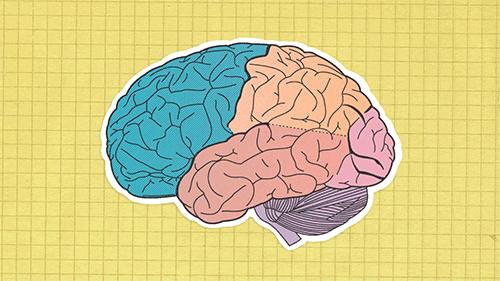Unit 1 Overview: Scientific Foundations of Psychology
3 min read•june 18, 2024
Dalia Savy
Sadiyya Holsey
AP Psychology 🧠
334 resourcesSee Units
From the College Board
👀 Develop your Understanding of this Unit
According to the College Board, "Psychology is the scientific study of behavior and mental processes🧠. This course examines the history of psychology and psychological theories, contemporary perspectives on psychology, and how psychological research is conducted. As scientists, psychologists collect data📊 and make observations about the ways in which humans and animals behave and think in order to understand behavior and mental processes."
"Psychologists use a variety of research methods and designs to conduct their research. These tools help them develop psychological theories about behavior and mental processes. To ensure that their results are valid and reliable, psychologists’ research must adhere to strict ethical and procedural guidelines⚠️. Historical research is the foundation of the field of psychology and has become the basis for the many subfields within psychology that exist today."
🔎 Guiding Questions
- How does the methodology of the research affect the outcome of a study?
- How do ethical guidelines impact psychological research?
Contextualizing the Unit
Psychology started as a study of the mind 🧠 and behavior which was more based on philosophy. Psychology transformed to more of science when Wilhelm Wundt created the first psychology lab.
Psychology involves the study of mind and behavior.
Psychologists try to study and understand the behavior and mental processes of others. Within psychology, there are various methods and theories to explain those behaviors and mental processes.
Roots of Psychology
You may not think this, but how the mind works was being questioned back when Socrates, Plato, and Aristotle were around. There were two main theories at the time: monism and dualism.
| Monism | Dualism | |
| Definition | The mind and body are the same; knowledge grows from experience and is stored in memories. | The mind is separate from the body, therefore knowledge is born within you and the mind survives past the body. |
| Who Believed this theory | Aristotle, Francis Bacon, and John Locke believed these. Francis Bacon expanded on this theory and created the idea of empiricism,* realizing that our mind recognizes patterns. Locke thought that the mind was a blank state at birth and coined the theory "tabula rasa." | Philosophers Socrates, Plato, and Rene Descartes believed that the mind and body were separate. Rene Descartes additionally believed that thoughts and actions go through "hollow nerves." |
*Empiricism—The idea that knowledge comes from experience. Therefore, science should rely on observation and experimentation, which are two research methods we study in this chapter.
Key Facts
🤓Psychologists to Know
- Mary Whiton Calkins—The first female president of the American Psychological Association. She created self-psychology, which emphasized a self-evaluation of one’s personal experiences.
- Charles Darwin—Developed theories of evolution and natural selection. His beliefs inspire the evolutionary approach in psychology.
- Dorothea Dix—An advocate for the mentally ill by highlighting the deplorable conditions in asylums. She created the first mental hospitals in America.
- Sigmund Freud—Sigmund Freud is the father of psychoanalysis.
- G. Stanley Hall—Known as the founder of educational psychology and child psychology. He shaped adolescent themes in psychology.
- William James—Wrote the Principles of Psychology and is the founder of functionalism. He created the James-Lange theory and mentored Mary Whiton Calkins.
- Ivan Pavlov—Known for his work in classical conditioning 🐶
- Jean Piaget—Created stages of development for children including the sensorimotor, preoperational, concrete operational, and formal operation phases.
- Carl Rogers—A humanist psychologist who created client-centered therapy where the therapist guides personal growth.
- B.F. Skinner—A behaviorist psychologist. He created the theory of operant conditioning where he studied how consequences shape behavior.
- Margaret Floy Washburn—The first woman granted a Ph.D. in psychology.
- John B. Watson—The father of behaviorism. He is famous for the controversial Little Albert🐁 experiment.
- Wilhelm Wundt—Created the first psychology laboratory. Also the founder of structuralism.
📝Vocabulary
| structuralism | introspection | functionalism | behaviorism |
| gestalt | experiment | correlational study | survey research |
| case study | longitudinal study | cross-sectional study | hawthorne effect |
| basic research | applied research | theory | operational definition |
| independent variable | dependent variable | confounding variable | control variable |
| random assignment | sampling bias | experimenter bias | hindsight bias |
| external validity | internal validity | descriptive statistics | inferential statistics |
| correlation | skews | normal | informed consent |
| debriefing | Milgram Experiment | mean | median |

Image Courtesy of Giphy
Browse Study Guides By Unit
🔎Unit 1 – Scientific Foundations of Psychology
🧠Unit 2 – Biological Basis of Behavior
👀Unit 3 – Sensation & Perception
📚Unit 4 – Learning
🤔Unit 5 – Cognitive Psychology
👶🏽Unit 6 – Developmental Psychology
🤪Unit 7 – Motivation, Emotion, & Personality
🛋Unit 8 – Clinical Psychology
👫Unit 9 – Social Psychology
🗓️Previous Exam Prep
📚Study Tools
🤔Exam Skills

Fiveable
Resources
© 2025 Fiveable Inc. All rights reserved.